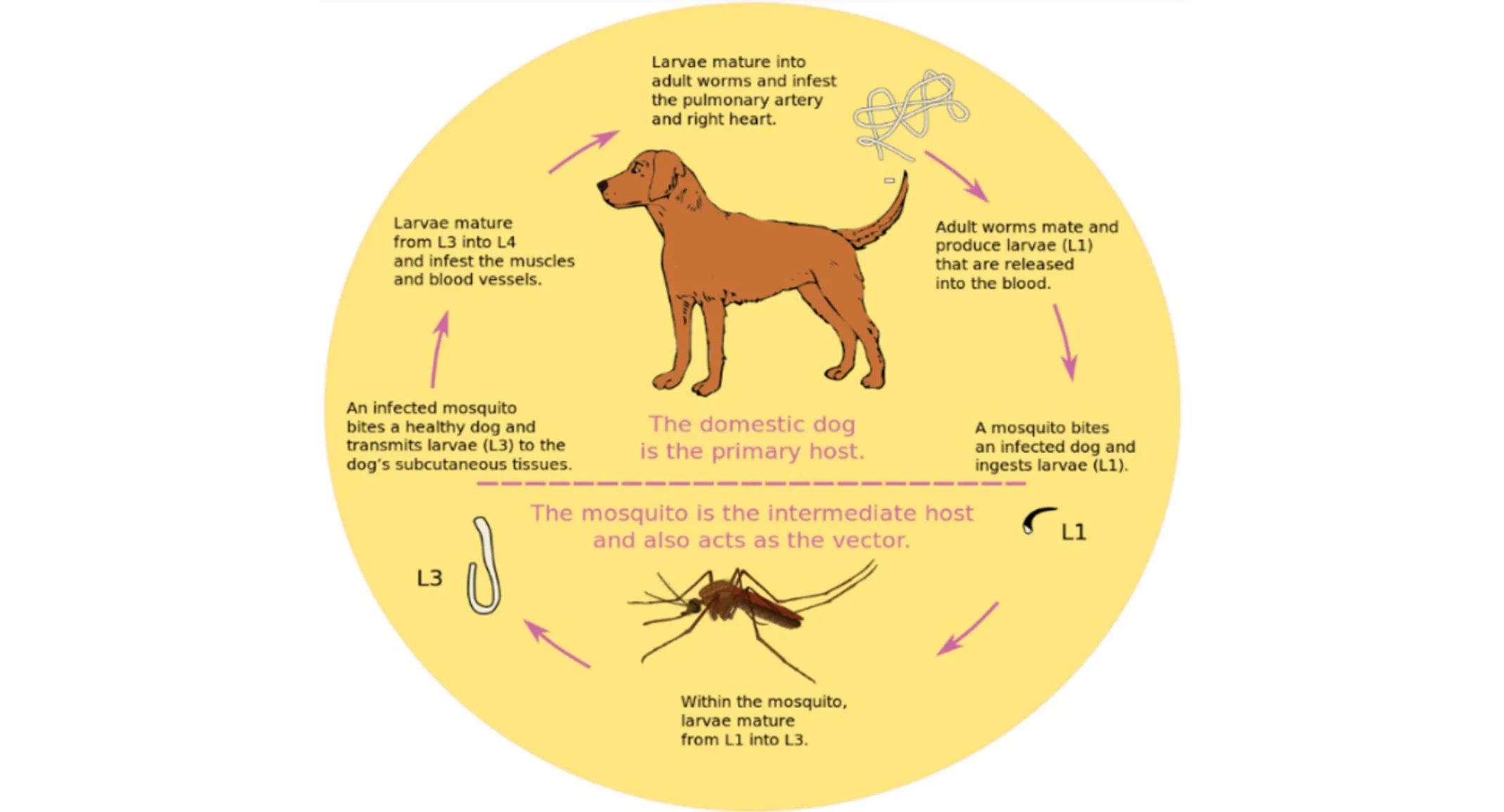My dog was diagnosed with heartworm – What do I need to know?
Diseases and Viruses

What is heartworm?
Heartworm is a foot-long worm that lives in the heart, lungs or large vessels of dogs, cats and ferrets. Dog is a natural host for heartworm which means the worm can mature and produce offspring in the dog’s heart. Untreated it is fatal but treatment is very successful and disease is preventable.
How is it transmitted?
Heartworm is transmitted by mosquitos.
What are the symptoms of heartworm?
Most patient will, at least initially, have no symptoms. When worm burden is large a persistent cough may develop. In alter stages difficulty breathing and/or heart failure occurs.
How is it diagnosed?
Heartworm can be diagnosed via blood test. If positive, it should be confirmed via another test as some other infections like Spirocerca can cause falsely positive results. Blood should also be tested for presence of microfilaria (baby heartworms) as they require separate treatment. It takes about 6 months post infection to detect heartworm on test.
Dogs. All dogs should be tested annually for heartworm infection. Timing of the test is important
Puppies under 7 months of age can be started on heartworm prevention without a heartworm test but should be re-tested 6 months after the initial test
Adult dogs over 7 months of age and previously not on a preventive should be tested prior to starting heartworm prevention. They, too, need to be tested 6 months later and annually after that.
Annual testing is recommended even when dogs are on heartworm prevention year-round, to ensure that the prevention medication is working.
Cats. Heartworm infection in cats is harder to detect than in dogs. The ideal method for screening cats includes the use of both an antigen and an antibody test (the “antibody” test detects exposure to heartworm larvae). There is no approved treatment for heartworm infection in cats, and therefore prevention is crucial for cats at risk.
Treatment (slow vs fast kill)
When your dog is diagnosed with heartworm you should implement activity restriction immediately to prevent life threatening cardiac or respiratory insufficiency.
Slow kill method should never be implemented. The worms may live up to 7 years and during that time most patients will succumb to heart failure or caval syndrome.
Caval syndrome is a life threatening condition when worms move from the pulmonary artery to the right side of the heart and vena cava causing obstruction. It is an emergency and surgical removal of worms is usually recommended. Medical treatment of caval syndrome can be tried but may be unsuccessful.
Fast kill is the recommended treatment in dogs. A protocol for treatment is available on the heartworm society website at the link below. It is highly effective and safe and requires 3 injections of the medication 1 month apart.
Prognosis
With treatment in stable patients prognosis is excellent for full recovery. In patients with heart failure, treatment may be performed but heart failure will no longer resolve.
You can visit heartworm society website at the link below for more detailed information:
